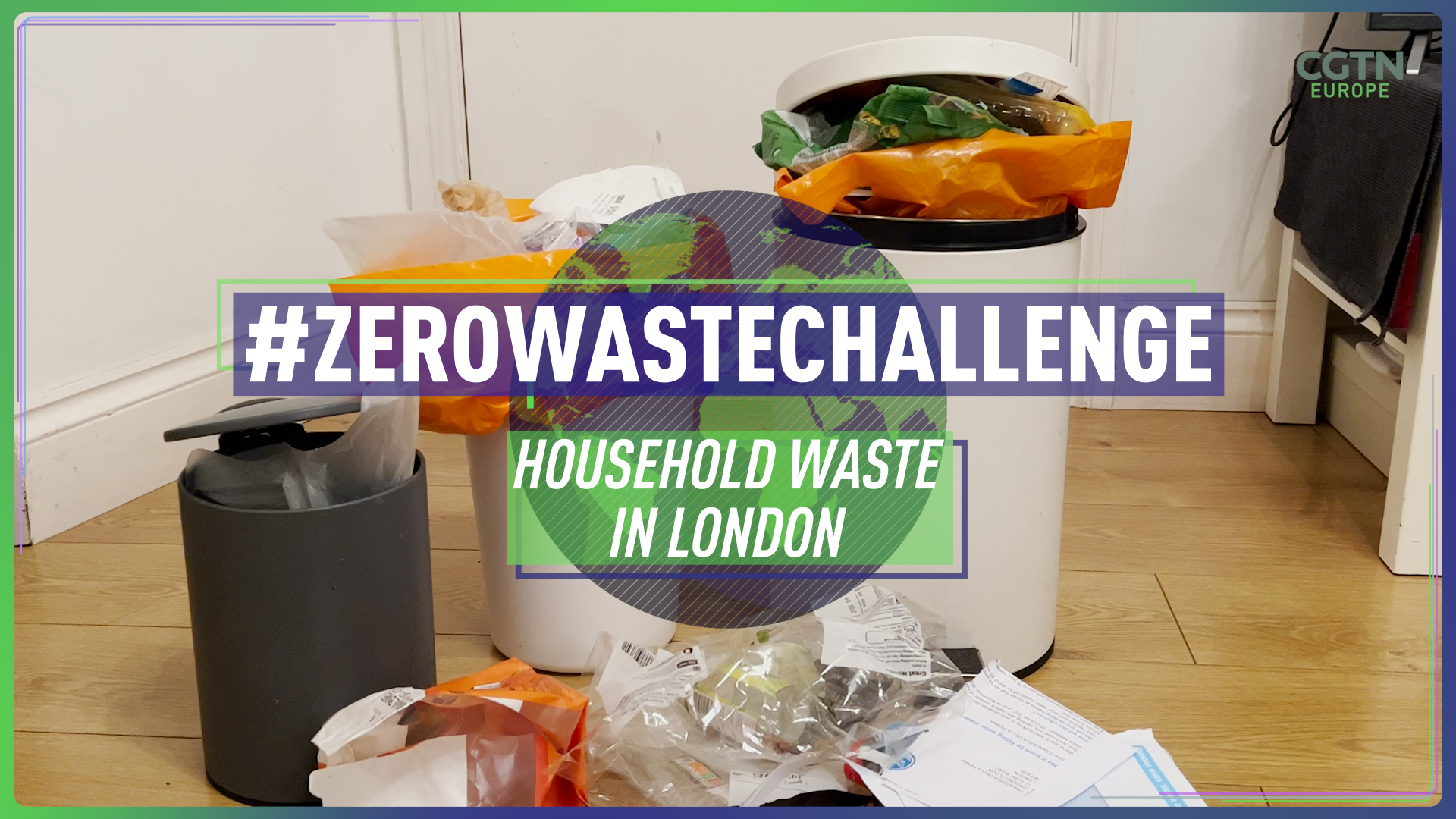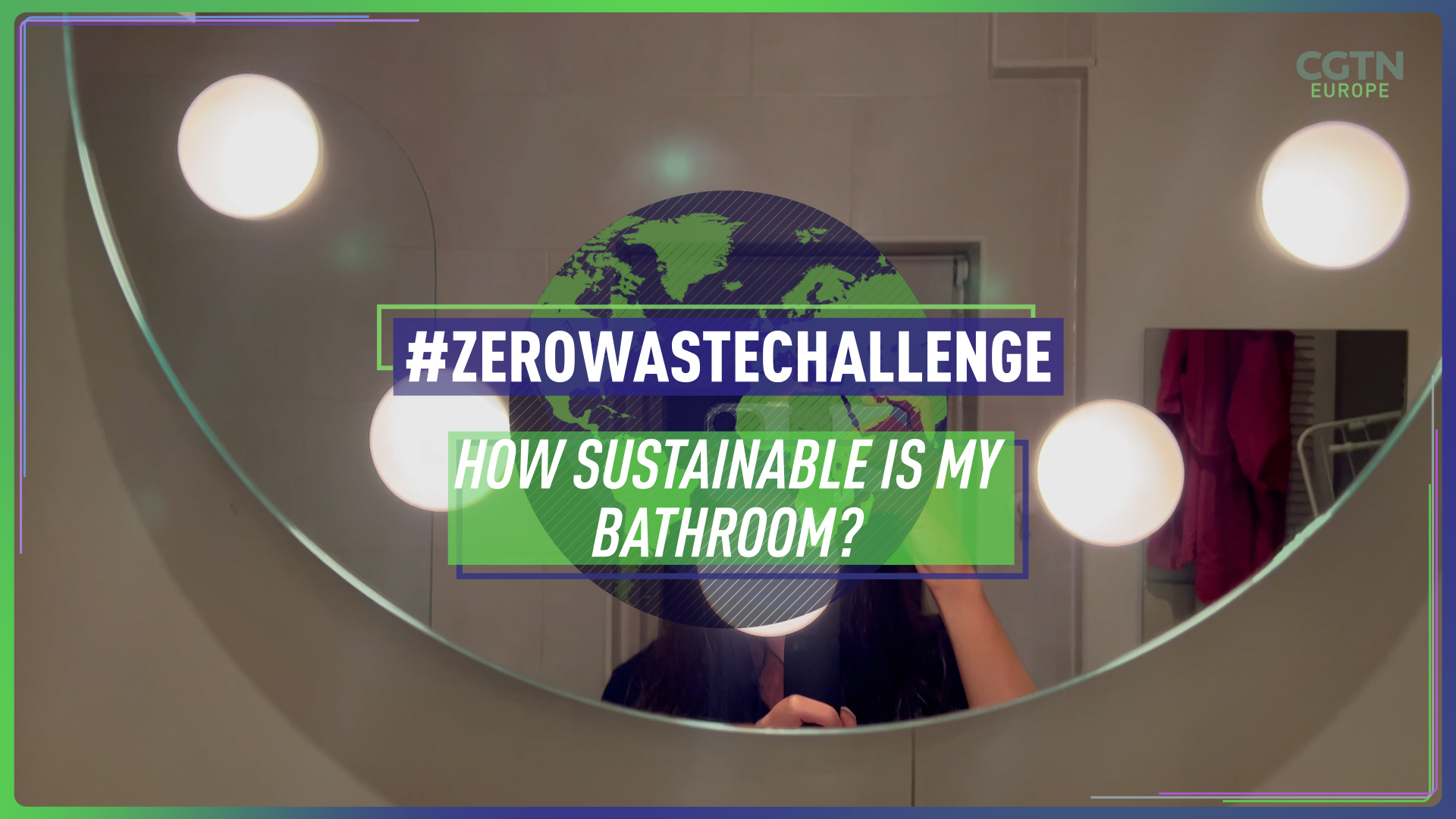In this section of CGTN's #ZeroWasteChallenge, we asked our four volunteers from four continents to examine their waste production at home. This is what we discovered.
03:10

"I've never thought about how much it costs to throw things away," admits our #ZeroWasteChallenge volunteer Francesca Della Penna, an Italian living in London, before some quick calculations reveal that residents on her street pay the council almost $150,000 a year in rubbish removal.
"The problem is that there is no incentive for me regarding waste – if I throw one bag of rubbish away it costs me the same as if I throw three bags away," she says. "This is the problem at the heart of richer countries regarding waste – out of sight, out of mind."
Della Penna then fearlessly takes us through her rubbish for the week, attempting to ascertain precisely which parts are recyclable in her area – it differs between local councils.
It also gives her a chance to check her food usage: "I try not to waste too many of the vegetables I buy – I haven't been producing a lot of food waste, which I'm proud of because I'm on a challenge here!"
04:58

Still, the results of Della Penna's self-examination surprise her: "After dividing all of the rubbish into general waste, food waste and recycling, I found out I've produced four bags full of rubbish – for one person. This is quite shocking."
Not only that, but most of it is non-recyclable. "The way they wrap face masks or personal hygiene products or anything you order online like jewelry – it's wrapped into plastic and stuff that cannot be recycled. Single-use plastics from food packages and other stuff – that's the majority of it."
There is some recyclable rubbish like cardboard and Della Penna is exploring other possibilities. "I'd like more information from the council on how to compost my food waste," she says. "What I'll do as the first thing is use the coffee grounds as fertilizer for my plants."
This story is part of CGTN's #ZeroWasteChallenge as four people on four continents reveal how sustainable their country's culture is.

